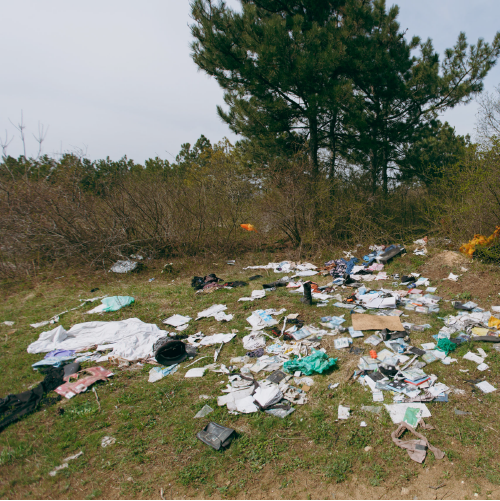
The pandemic has put the brakes on international travel, with millions of Britons either unable to go abroad or feeling uncomfortable venturing overseas for this year’s summer break.
While this is great news for the UK travel industry, it’s less welcome for municipal waste management teams, which are being forced to tackle increased rubbish and fly tipping reports.
How can local authorities keep pace with refuse collections when services are under extra pressure? Let’s take a closer look…
Brits opt for summer staycation
With travel to many international regions heavily restricted and regulations constantly changing, foreign holidays seem less alluring now than before the pandemic. YouGov research has revealed that just 1 in 10 Britons feel confident travelling overseas this summer.
As a result, more people have booked holidays on home turf this year. But while this trend is helping UK hospitality’s recovery after a turbulent 18 months, it’s putting unexpected pressures on regional infrastructures.
Many of the tourists travelling to local attractions and beauty spots are failing to take responsibility for the rubbish they are generating, creating additional clean-up needs across the country. For example:
- In Merseyside, local residents have complained about litter and smashed bottles being left behind at Carr Mill Dam
- The Edinburgh Pentlands have repeatedly experienced antisocial behaviour, with some visitors leaving behind equipment such as tents after wild camping
- Visitors to Shoreham beach in West Sussex have left rubbish bins overflowing, despite Adur & Worthing Councils conducting 3-4 waste collections per day
- Leicester’s Aylestone Meadows beach has also been blighted by litter, with used barbecues, takeaway packaging and dirty nappies among the discarded items
It’s not just holidaymakers that have been causing waste collection woes, either. Many local authorities were forced to scale-up services following the year-delayed UEFA European Football Championship. In London alone, nearly 30 tonnes of rubbish were picked up from public spaces following the Euro 2020 final in July.
Tactics for tackling a summer refuse surge
In an ideal world, everyone would dispose of their rubbish responsibly and tourism would have no impact on municipal waste. But the reality is that while there are still litter louts, local authorities need to look at ways to manage a surge in refuse levels.
There are many tactics that council waste management teams can introduce to deal with increased refuse and fly-tipping over the summer – these include:
Scheduling extra collections – increasing the frequency of regional refuse collections during busy holiday periods, to prevent services falling behind.
Finding everyday improvements – using route planning and optimisation software to closely monitor whether collection crews are completing their rounds on time and if every truck is filled to capacity, making tweaks that increase the efficiency of refuse collections.
Making it easy to report extra collections and fly-tipping incidents – giving local communities the tools to report problems in their vicinity. Many councils are rolling out their own resident portal or mobile app to enable quick feedback online.
Understanding round requirements in real-time – one major problem local authorities face with traditional waste management services is the delay between collection crews encountering issues and being able to report them back. Introducing mobile in-cab communication allows instant dialogue between those on the road and head office, so waste management teams can update workflows and re-plan routes to tackle problems on-the-go.
Analysing data to prevent future problems – when waste management services experience a sudden increase in demand, the immediate concern is getting back on terms with regular refuse collections as quickly as possible. But following this summer, councils can learn from local events to improve future services – particularly if they have analytics software in place to track and report on critical data.
Delivering change through one piece of waste management software
Tourism is a pivotal industry to the UK economy, and every attraction in the country wants to provide a clean and welcoming environment for visitors. Council waste management services play a vital role in controlling refuse volumes during peak holiday periods, and municipal waste management software can help local authorities to deal with seasonal surges effectively.
From the tactics we’ve discussed in this post, it may feel like councils need to invest in several pieces of technology to improve waste management infrastructures. However, this isn’t the case.
It’s possible to achieve everything – from route optimisation to resident feedback – through one piece of waste management software. Delivering rapid return on investment, as well as infrastructure improvements.
Whitespace municipal waste management technology is being used by over 100 councils across the UK to analyse and improve regional refuse collections.
Book your free Whitespace demo to discover how our software can enhance your waste collection strategies.
Keep up-to-date with the latest blogs by signing up to our monthly newsletter!
